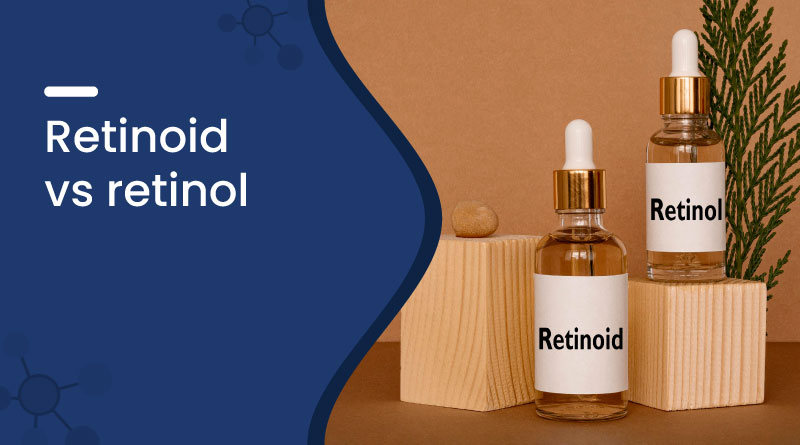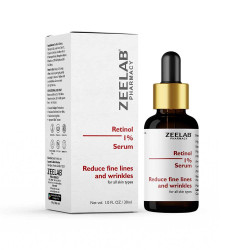Retinoid vs Retinol: What’s the Real Difference?


If you're searching for youthful, radiant skin, you've probably come across the terms retinoid and retinol. Both are Vitamin A derivatives used to treat acne and signs of aging. But when it comes to retinoid vs retinol, which one is right for your skin? In this blog, we’ll break down the differences, benefits, and which option suits your skincare goals better.
Retinoid vs Retinol: What’s the Real Difference?
| Category | Retinoid | Retinol |
|---|---|---|
| What Is It? | Prescription-strength vitamin A derivative (e.g., tretinoin, adapalene) Already in active form Requires dermatologist supervision |
Over-the-counter (OTC) derivative Converts into retinoic acid within the skin Easily available in serums and creams |
| How It Works | Directly accelerates cell turnover Unclogs pores, treats moderate to severe acne Reduces wrinkles, pigmentation fast |
Gradual conversion to active form Helps improve texture and tone Works best with consistent, long-term use |
| Strength | Highly potent Fast results May cause dryness, redness, peeling initially |
Milder Fewer side effects Takes longer to show results |
| Skin Type Suitability | Best for oily, acne-prone skin Suitable for advanced users |
Ideal for dry, sensitive, or beginner skin Suitable for long-term use |
| Main Benefits | Deep wrinkle repair Clears acne fast Targets pigmentation strongly |
Boosts glow, smooths fine lines, and strengthens skin barrier |
| Side Effects | Higher irritation risk Requires moisturiser + sunscreen Needs medical supervision |
Minimal irritation Safe for most users Works well with moisturising ingredients |
| Anti-Aging Performance | Stronger and faster Best for deep wrinkles and advanced aging |
Milder anti-aging benefits Ideal for maintaining youthful skin |
| Acne Control | Treats moderate to severe acne effectively | Suitable for mild breakouts Prevents clogged pores over time |
| Best For | Fast results, experienced users, acne-prone skin | Beginners, sensitive skin, long-term skin health |
Frequently Asked Questions
Q. Can I use retinoid and retinol together?
A. No, you should use only one at a time. Using both may irritate your skin.
Q. How long does retinol take to work?
A. Visible results start appearing in 8–12 weeks with consistent use.
Q. Is retinoid available over-the-counter?
A. Most strong retinoids require a prescription, except adapalene which is OTC in some cases.
Q. Can retinol be used daily?
A. Yes, once your skin adjusts, daily usage is fine. Start slow and build up frequency.
Q. Does retinol cause purging?
A. Yes, in some users, initial breakouts may occur as skin renews itself faster.
Conclusion: Which Should You Choose?
In the retinoid vs retinol debate, there’s no one-size-fits-all answer. Retinoids offer faster results but come with a higher risk of irritation. Retinol is safer for most skin types and perfect for beginners. It depends on your skin goals and tolerance.
For a safe and effective start, try Zeelab Retinol Serum—a dermatologist-trusted solution designed for Indian skin types.
Recent Blogs
Disclaimer : Zeelab Pharmacy provides health information for knowledge only. Do not self-medicate. Always consult a qualified doctor before starting, stopping, or changing any medicine or treatment.

















 Added!
Added!